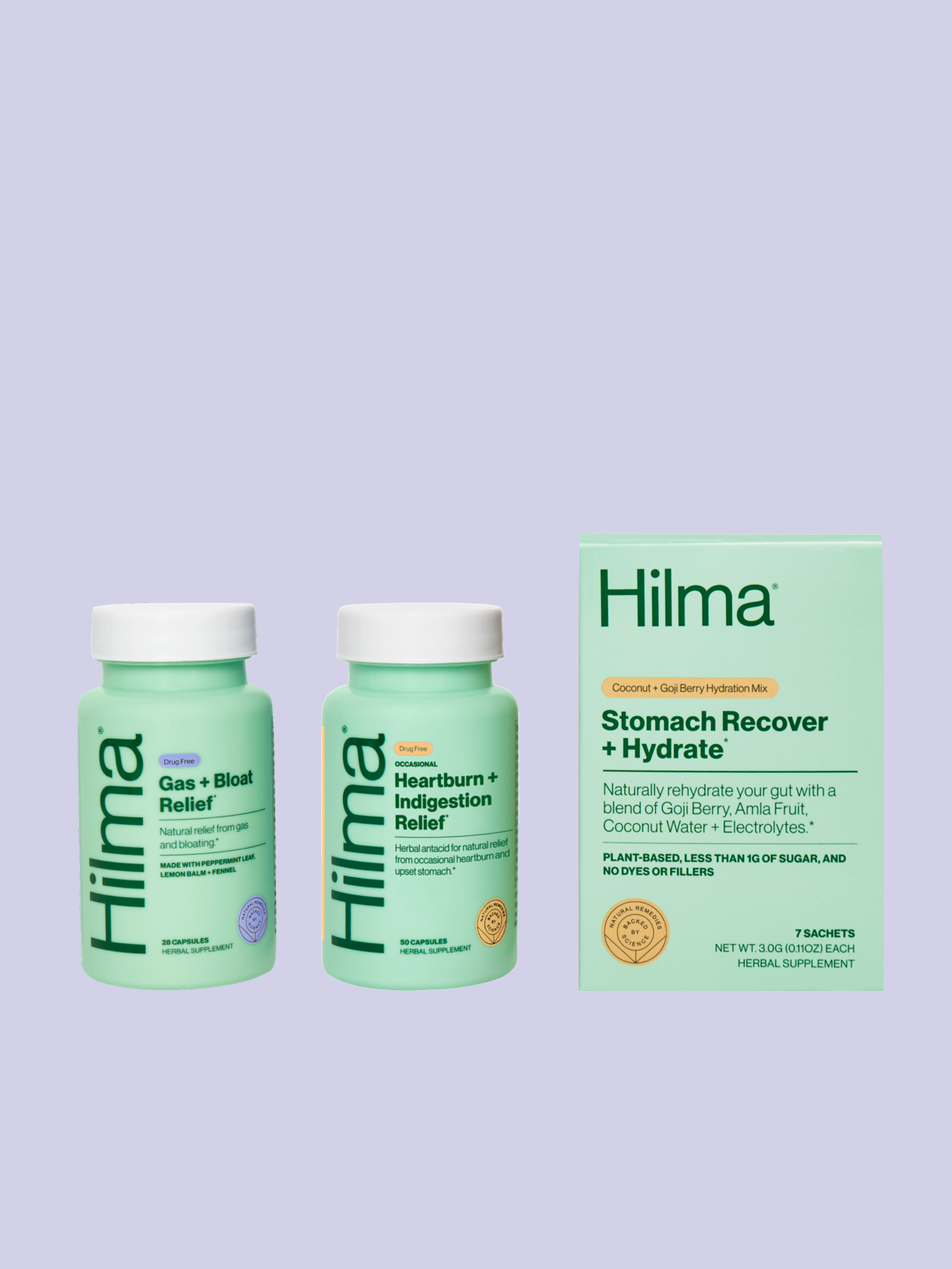Immune health depends on a consistently healthy lifestyle.
But consistency can be tough, and everyone has off days. So we sat down with Yale-trained MD, herbalist, and Hilma scientific advisor Dr. Aviva Romm to discuss how supplements can help fill in the gaps when your healthy habits might fall short.
Dr. Romm notes that the immune system relies on a host of factors — getting enough sleep, managing stress, and getting essential nutrients like zinc, iron, and Vitamin D. Not only are these lifestyle habits hard to consistently maintain on their own, but they’re often under attack. “We’re exposed to a regular barrage of factors that can tax the immune system,” explains Dr. Romm. She lists stress, processed foods (that create inflammation), sugar (which can deplete our nutrients) and pollution amongst the greatest challenges.

To function at its most powerful capacity, your immune system needs balanced levels of certain proteins like those found in Vitamin A, C, and D. Vitamins have been shown to benefit your immune response (the trigger that flags when you have encountered an infection) by proliferating antibodies throughout your systems. Without enough of the right vitamins, your immune system does not have what it needs to sound the alarm.
“That’s why” she explains, “we often need a little extra support by way of nutrients and herbs that can help us adjust to, cope with, and buffer against infection and inflammation.”
So how do supplements actually combat these forces? It depends on the formulation.
Cytokines
Some herbs benefit the immune system by bolstering the expression of cytokines — proteins that fend off inflammation and infections by regulating the innate and adaptive immune systems. Echinacea, for example, has been found to help stimulate an immune reaction by regulating cytokines in healthy subjects.
Each herb has its own effect on the immune system based on its expression of cytokines. Dr. Romm explains that components of an herb like echinacea may actually “irritate” the immune system, which triggers its innate responses and motivates the system to go after a virus. While others, like garlic, goldenseal, or oregano are more directly antibacterial or antiviral.
Some supplements support the system more broadly. Dr. Romm explains that some medicinal mushrooms and adaptogens support the HPA axis--the stress response--and can “cause a cascade of anti-inflammatory reactions, and stimulation of the immune system to produce immune cells that fight viruses and generally improve immune health.”
Taking supplements that include a mix of essential nutrients and immune-supporting herbs are a great way to build up your immune health.
Footnotes
1. Mora, J Rodrigo, et al. “Vitamin Effects on the Immune System: Vitamins A and D Take Centre Stage.” Nature Reviews. Immunology, U.S. National Library of Medicine, 8 Sept. 2008, www.ncbi.nlm.nih.gov/pmc/articles/PMC2906676/.
2. Dapas, B, et al. “Immunomodulation Mediated by a Herbal Syrup Containing a Standardized Echinacea Root Extract: a Pilot Study in Healthy Human Subjects on Cytokine Gene Expression.” Phytomedicine : International Journal of Phytotherapy and Phytopharmacology, U.S. National Library of Medicine, 28 May 2014, pubmed.ncbi.nlm.nih.gov/24877712/.



